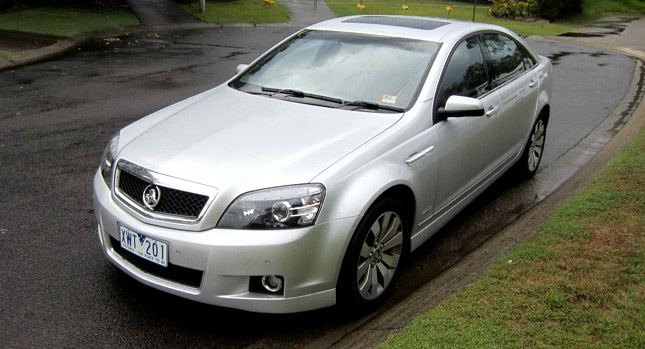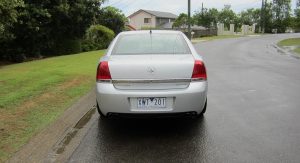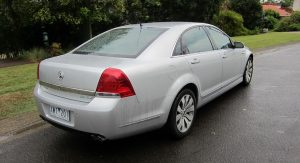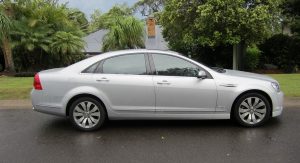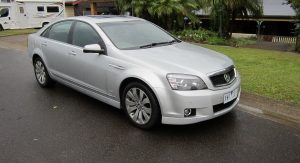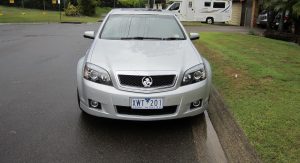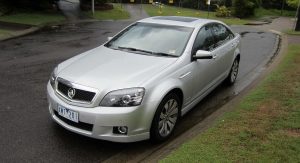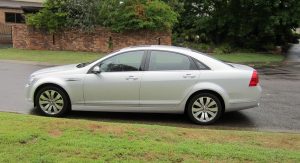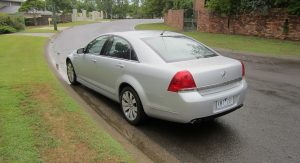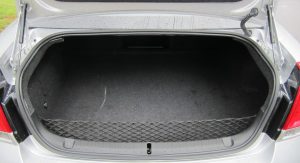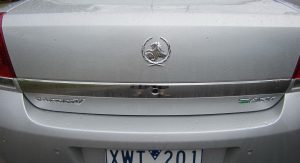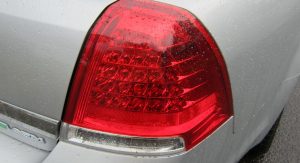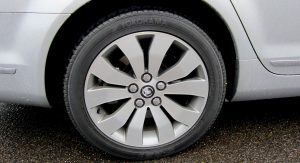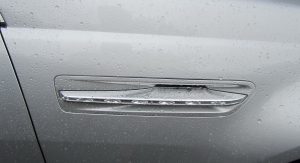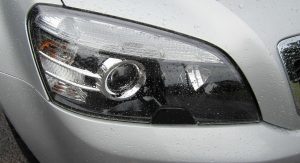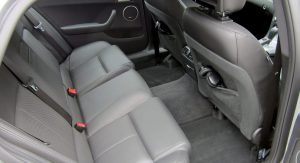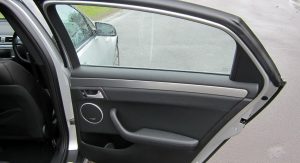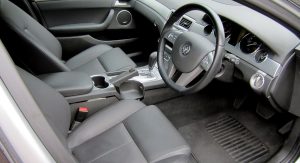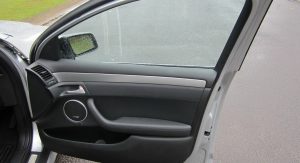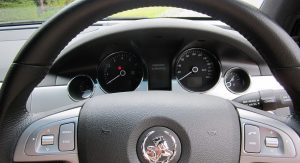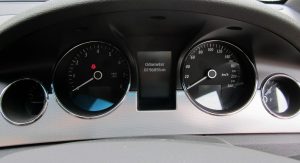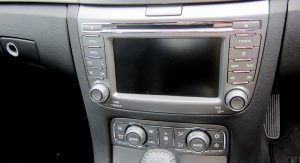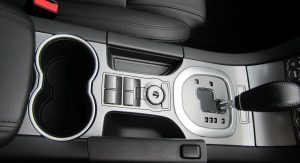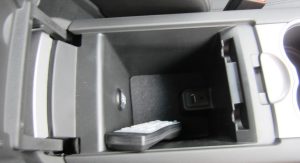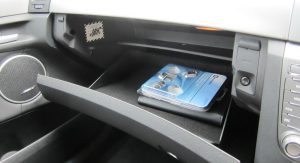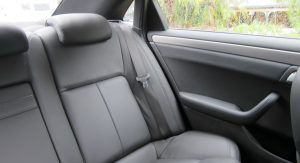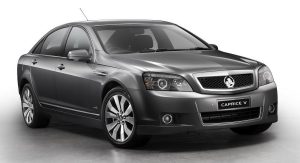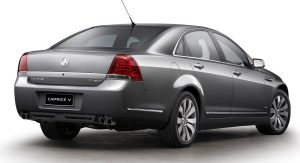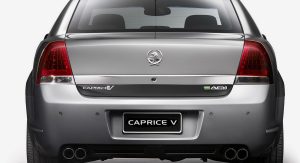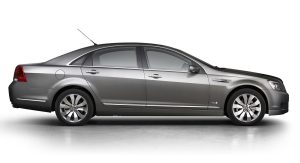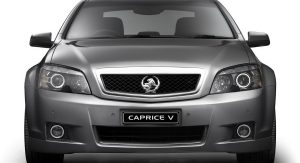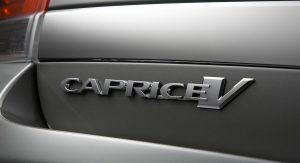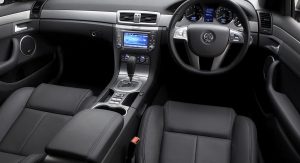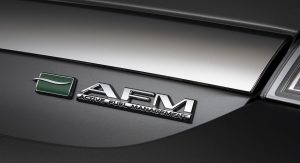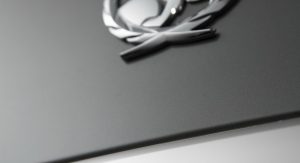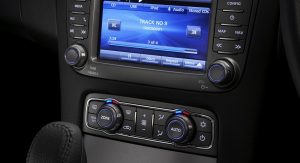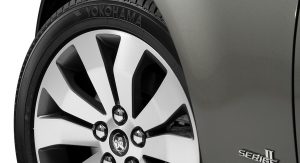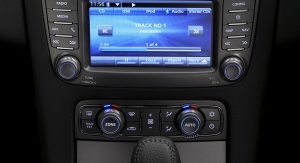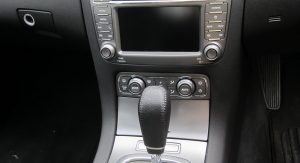The car that most Americans know as the Chevy Caprice PPV (Police Patrol Vehicle) owes as much to the Australian designed and built Holden Caprice luxury sedan reviewed here as the latter owes to business decisions Ford Australia made a couple of decades ago.
In the early 1970s, Holden – GM’s Australian subsidiary – introduced two new models to compete with local rival Ford. The first was the Statesman, a vehicle with no Holden badging whatsoever, designed as a direct competitor to Ford’s Australian-built Fairlane and as a replacement for the unloved Brougham sedan.
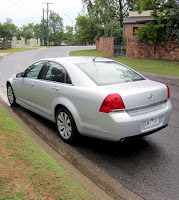 A few years later came the Statesman Caprice, an even more luxurious model, introduced to compete with Ford’s freshly minted LTD.
A few years later came the Statesman Caprice, an even more luxurious model, introduced to compete with Ford’s freshly minted LTD.
Thus the Caprice name was born. Over the years the Caprice has grown in interior room, price and standard equipment but retains the same basic idea of what Aussie luxury should be. We took the V8 engined V Series II model out for a week long road test and review.
Overview
The first thing you’ll notice about the Caprice is the lengths Holden has gone to in order to differentiate it from the bread-and-butter Commodore (sold in the States as the Pontiac G8). Almost everything from the head- and taillights, front and rear bumpers and the bodywork aft of the B-pillar have been changed.
The result is a car that is attractive in profile and which carries a strong and masculine air from most angles. In terms of size, the Caprice is 5,161 mm (203 in) from end to end with a wheelbase of 3,010 mm (118.5 in). It’s also 1,899 mm (75 in) wide and 1,475 mm (58 in) tall. It’s a full-sized sedan and certainly feels like it initially.
Inside Scoop
As with the Commodore, four adults can be seated comfortably in the Caprice. There are a pair of headrest-mounted, DVD-compatible LCD screens for the rear seat passenger and a tilt-and-slide electric sunroof for the driver and front passenger.
I found however that the sunroof cuts into the front headroom, leading to an uncomfortable driving position for taller people such as myself (I’m 181 cm / 5 ft 11 in).
Holden’s much hyped iQ system makes an appearance, though its placement at elbow-level in the centre console makes it uncomfortable to use at time. Otherwise, the Caprice’s cabin is a nice place to be, with dual zone climate control, bolstered leather seats and touches of metallic trim to brighten up the otherwise Commodore-standard interior.
On The Road
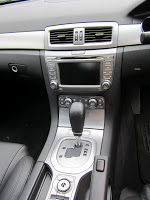 Let’s talk about performance. The Caprice V’s 6.0-liter V8 packs 260 kW (349-horses) of power at 5,600 rpm and 517 Nm (381 ft lb) of peak torque at 4,400 rpm.
Let’s talk about performance. The Caprice V’s 6.0-liter V8 packs 260 kW (349-horses) of power at 5,600 rpm and 517 Nm (381 ft lb) of peak torque at 4,400 rpm.
Mated to a six-speed automatic transmission (there is no manual option), the Caprice V returns a quoted 12.3 lt/100 km or 19.1 mpg US (I recorded an average of 12.6 lt/100 km or 18.7 mpg US). It’s a smooth and flexible engine that’s perfectly suited for highway cruising.
One complaint is interior NVH (Noise, Vibration, and Harshness), which I think could have been suppressed a little better in a car costing upwards of AU$69,990 (US$71,579 / €56,268). Still, the Caprice V is about as comfortable and compliant as one could have hoped for. Stopping power is more than adequate, provided by ventilated discs all round.
The Final Word
The Holden Caprice V is a very good car, with a long and proud history backing it up. Unfortunately, it lags in comparison with its German and Japanese rivals in terms of interior quality, refinement and fuel efficiency.
It also doesn’t compare favourably with its much cheaper (and almost identically equipped) younger sibling: the Calais V, a car that is not only smaller (and therefore would have better handling and fuel consumption) but significantly cheaper.
Though preferred by politicians both in Australia and in New Zealand and a favourite choice for wedding limos, it’s hard to rationalise the Caprice V as a private buyer purchase. More equipment and differentiation from the Calais V would no doubt help in this endeavor.
By Tristan Hankins
PHOTO GALLERY



